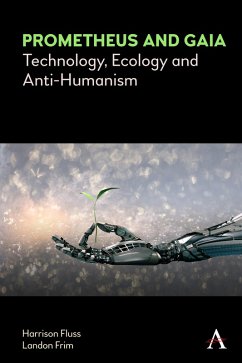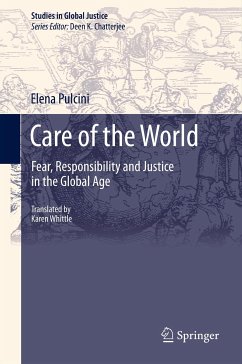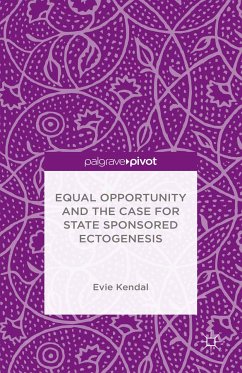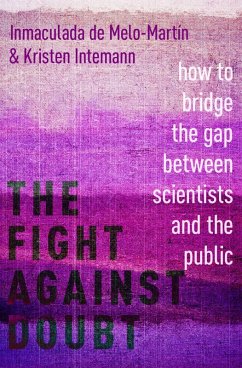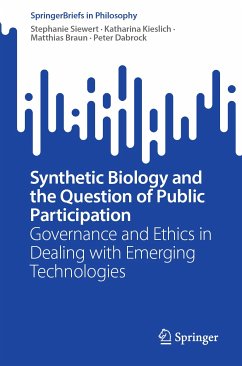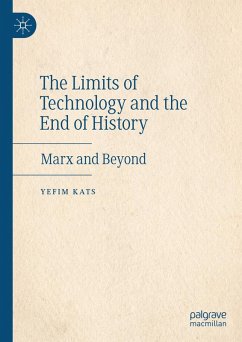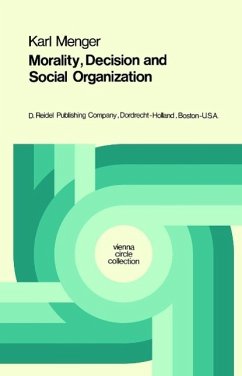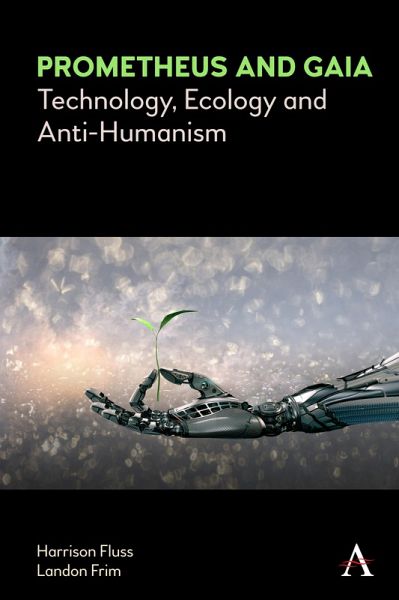
Prometheus and Gaia (eBook, PDF)
Technology, Ecology and Anti-Humanism
Versandkostenfrei!
Sofort per Download lieferbar
29,95 €
inkl. MwSt.
Weitere Ausgaben:

PAYBACK Punkte
15 °P sammeln!
Prometheus and Gaia examines the ideological currents known as Futurism and Eco-Pessimism. While these tendencies are rarely spoken about explicitly, especially in mainstream discourse, they do have strong (if subterranean) influences on today's popular politics. In light of the existential threats posed by climate change, nuclear proliferation, disruptive technologies (especially bioengineering and AI) and looming economic crises, many have grown weary of the "small fixes" offered by conventional politicians. Worsening climate change, to take one example, appears to be a problem that "reducin...
Prometheus and Gaia examines the ideological currents known as Futurism and Eco-Pessimism. While these tendencies are rarely spoken about explicitly, especially in mainstream discourse, they do have strong (if subterranean) influences on today's popular politics. In light of the existential threats posed by climate change, nuclear proliferation, disruptive technologies (especially bioengineering and AI) and looming economic crises, many have grown weary of the "small fixes" offered by conventional politicians. Worsening climate change, to take one example, appears to be a problem that "reducing, reusing, and recycling," or non-binding treaties, are inadequate to remedy. Likewise, perennial economic crises seem too large and too systemic a threat compared to the moderate "fixes" of quantitative easing and government bailouts. If the system, itself, is the problem, then some radical change appears necessary.
Here, two styles of thought emerge to challenge the status quo: The Futurist sees in existential threats just so many symptoms of a disconnect. This is the widening chasm between a dynamic and ever-accelerating technology, on the one hand, and an all-too static conception of human nature and human society, on the other. Their solution is to fully embrace the disruptive and anarchic powers of technology, and to leave the human as we know it behind, as nothing more than a parochial relic. The Eco-Pessimist instead sees technological development as the problem. The need to dominate nature, and our spoiling the planet, is the proximate cause of our contemporary crises. Their solution is to chastise human consumption, egoism and instrumental reason as destructive of a holistic, planetary balance.
What these two ideologies have in common is a strident anti-humanism. Each, in their own way, subordinates human welfare and reason to some alien "other." This common anti-humanism is, in some respects, more important than the specific "other" that they designate-whether this be an anarchic nature or a dynamic technology. In both cases, what stands above humanity is valorized as an object of adoration rather than true understanding or comprehension. This need for radical transcendence beyond the human masquerades as a new form of politics; in fact it is a pre-modern and counter-Enlightenment tendency. Prometheus and Gaia seeks to uncover and demystify this strange coincidence of opposites, and goes on to make the positive case for a humanistic rationalism.
Here, two styles of thought emerge to challenge the status quo: The Futurist sees in existential threats just so many symptoms of a disconnect. This is the widening chasm between a dynamic and ever-accelerating technology, on the one hand, and an all-too static conception of human nature and human society, on the other. Their solution is to fully embrace the disruptive and anarchic powers of technology, and to leave the human as we know it behind, as nothing more than a parochial relic. The Eco-Pessimist instead sees technological development as the problem. The need to dominate nature, and our spoiling the planet, is the proximate cause of our contemporary crises. Their solution is to chastise human consumption, egoism and instrumental reason as destructive of a holistic, planetary balance.
What these two ideologies have in common is a strident anti-humanism. Each, in their own way, subordinates human welfare and reason to some alien "other." This common anti-humanism is, in some respects, more important than the specific "other" that they designate-whether this be an anarchic nature or a dynamic technology. In both cases, what stands above humanity is valorized as an object of adoration rather than true understanding or comprehension. This need for radical transcendence beyond the human masquerades as a new form of politics; in fact it is a pre-modern and counter-Enlightenment tendency. Prometheus and Gaia seeks to uncover and demystify this strange coincidence of opposites, and goes on to make the positive case for a humanistic rationalism.
Dieser Download kann aus rechtlichen Gründen nur mit Rechnungsadresse in A, D ausgeliefert werden.




